Taiwan’s press freedom is an asset to an embattled Asia
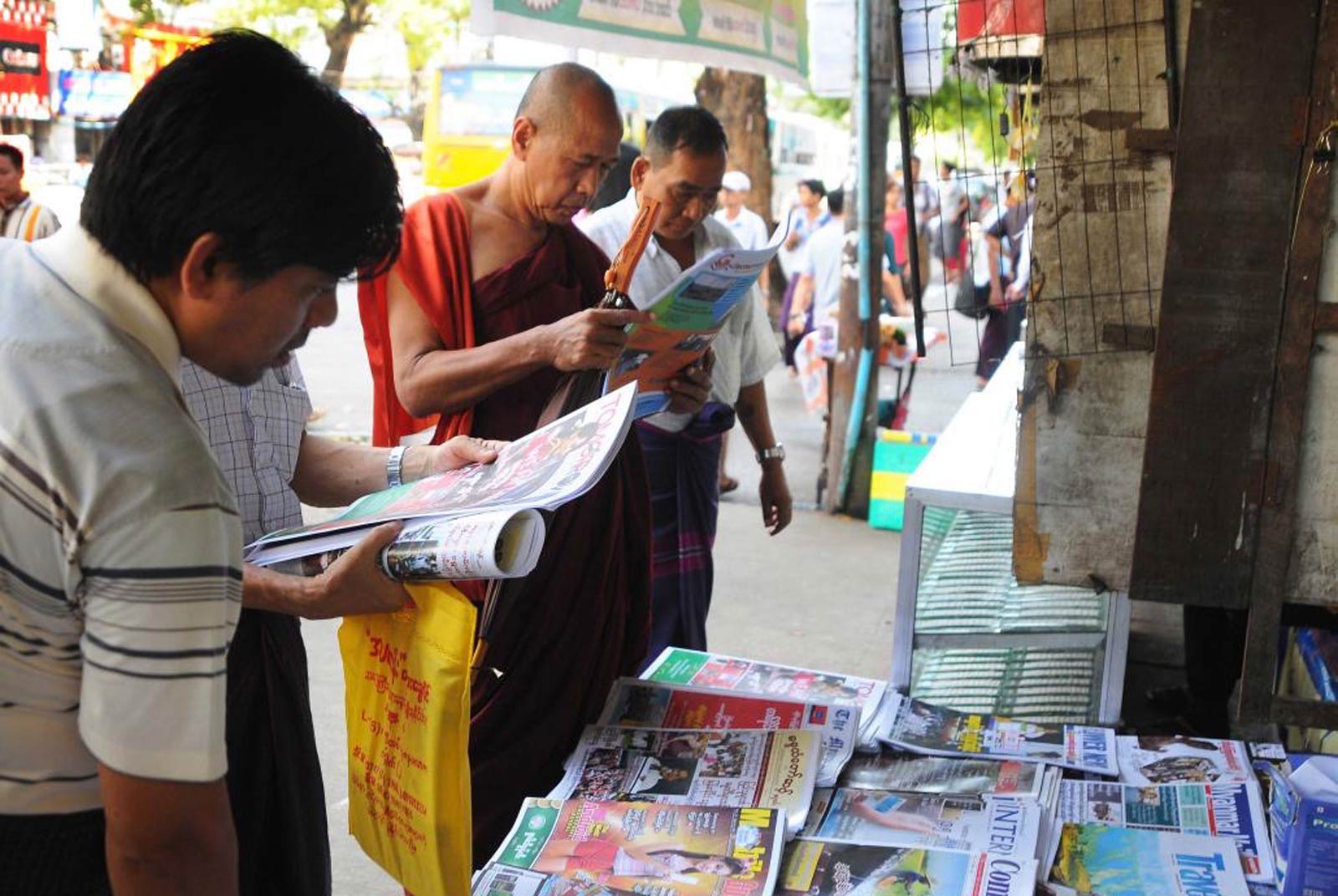
Source:Frontier Myanmar
Taiwan ranked second in East and Southeast Asia in the 2023 World Press Freedom Index, only after Timor-Leste, as media space is under threat across the region.
Views
Taiwan’s press freedom is an asset to an embattled Asia
By Thompson Chauweb only
A Burmese friend of mine recently resurfaced again after quite a while. We both worked at English-language broadsheet Myanmar Times in Yangon, which collapsed within a month after Myanmar’s 2021 military coup. Fearing his family’s safety but committed to do his job, he sent his wife and their baby son to the countryside, and went into hiding in order to continue reporting. “That’s to protect my loved ones. If the junta catches me, they are no longer associated,” he told me two years ago.
Now, my friend is finally out of the country and has reunited with his family, but isn’t leaving journalism. “It’s tough but I’m not leaving my job. My country is still in a huge crisis. Journalism is a commitment I made both personally and professionally,” he told me. He has been working for a Burmese underground media outlet.
U.S. journalist Danny Fenster from Frontier Myanmar, which I also work for, was imprisoned in Yangon’s notorious Insein prison for half a year. This was followed by the arrest of Ye Mon, another Frontier colleague, who was blinded and raped by soldiers while in detention. “I was in shock; I never expected the soldiers would behave like that. It occurred to me that if they were sick enough to rape me, they could kill me at any moment,” he wrote afterwards.
Such is the courage, plight and professionalism of these reporters. Frontier colleagues are now working in Chiang Mai, Thailand, and so are many Burmese news outlets. What Taipei is to the China journalist community is what Chiang Mai is to the Myanmar-focused journalists.
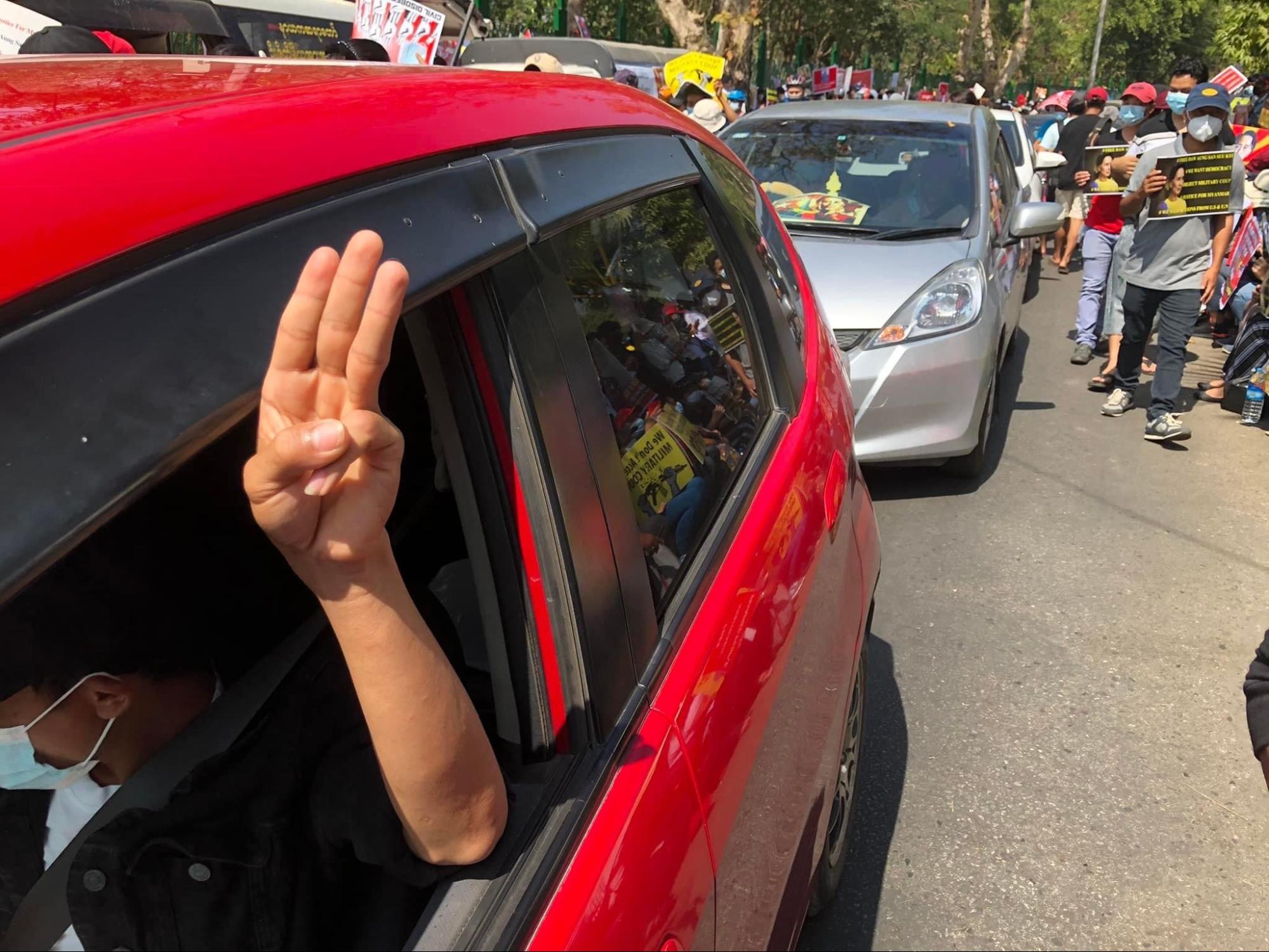 Myanmar people protest against the coup that the Burmese military launched on February 1st, 2021. A striking feature of the protests is the three-finger salute displayed by pro-democracy activists, a symbol of resistance against oppressive authoritarian rule. (Photo credit: Thompson Chau)
Myanmar people protest against the coup that the Burmese military launched on February 1st, 2021. A striking feature of the protests is the three-finger salute displayed by pro-democracy activists, a symbol of resistance against oppressive authoritarian rule. (Photo credit: Thompson Chau)
There are indeed some parallels. Recently, a group of journalists from Hong Kong set up Photon media in Taiwan amid widespread crackdown against journalists in the city. They “strive to provide news with different perspectives, and let the voices of the Hong Kong diaspora and dissents be heard again,” the outlet said.
Beijing has expelled, threatened and refused visas for many foreign journalists in recent years. Many have moved to Taipei. Some are still waiting to go to China, as they work from Taipei and seek to understand Taiwan’s history and society. This has brought a diversity of knowledge and expertise to Taiwan, and given more oxygen to Taiwanese perspectives.
Taiwan’s journalist community has been enriched by dozens of correspondents who would otherwise have been based in China. In the past, news outlets would send their Beijing correspondents to Taiwan to cover major events, often embedded with a Chinese narrative. As Taiwanese journalist William Yang noted: “What really triggers [Taiwanese readers] are cliché phrases like renegade province… I think these phrases really make people here feel like the international media is just not interested in really incorporating Taiwanese people’s perspective.”
Under decades of Japanese rule and after Chiang Kai-shek’s regime imposed a brutal control across Taiwan, press freedom didn’t flourish until martial law was lifted and the ban on free speech relaxed. But even as Taiwan ushered in the democratic age, some threats to media practitioners remain.
As recently as 2019, Want Want China Times Group, one of the most influential conglomerates in Taiwan, attempted to sue Financial Times and its Taiwan-based correspondent Kathrin Hille over her reporting on the company's interactions with China's government. The company later dropped its lawsuit after a senior employee inadvertently confirmed Hille's reporting.
The Taiwan Foreign Correspondents’ Club (TFCC) has repeatedly advocated for freedom of expression and access to information, speaking out against the lawsuit targeted at Hille, herself a TFCC ex-president, and raising concerns with the government when freelancers were mistreated during the COVID-19 pandemic.
The TFCC is set up to promote the professional interests of foreign correspondents in Taipei and facilitate interaction between them and policymakers, political leaders, academics and civil society in Taiwan. We seek to invite such experts and decision makers to discuss and debate the pressing issues of our time at the TFCC.
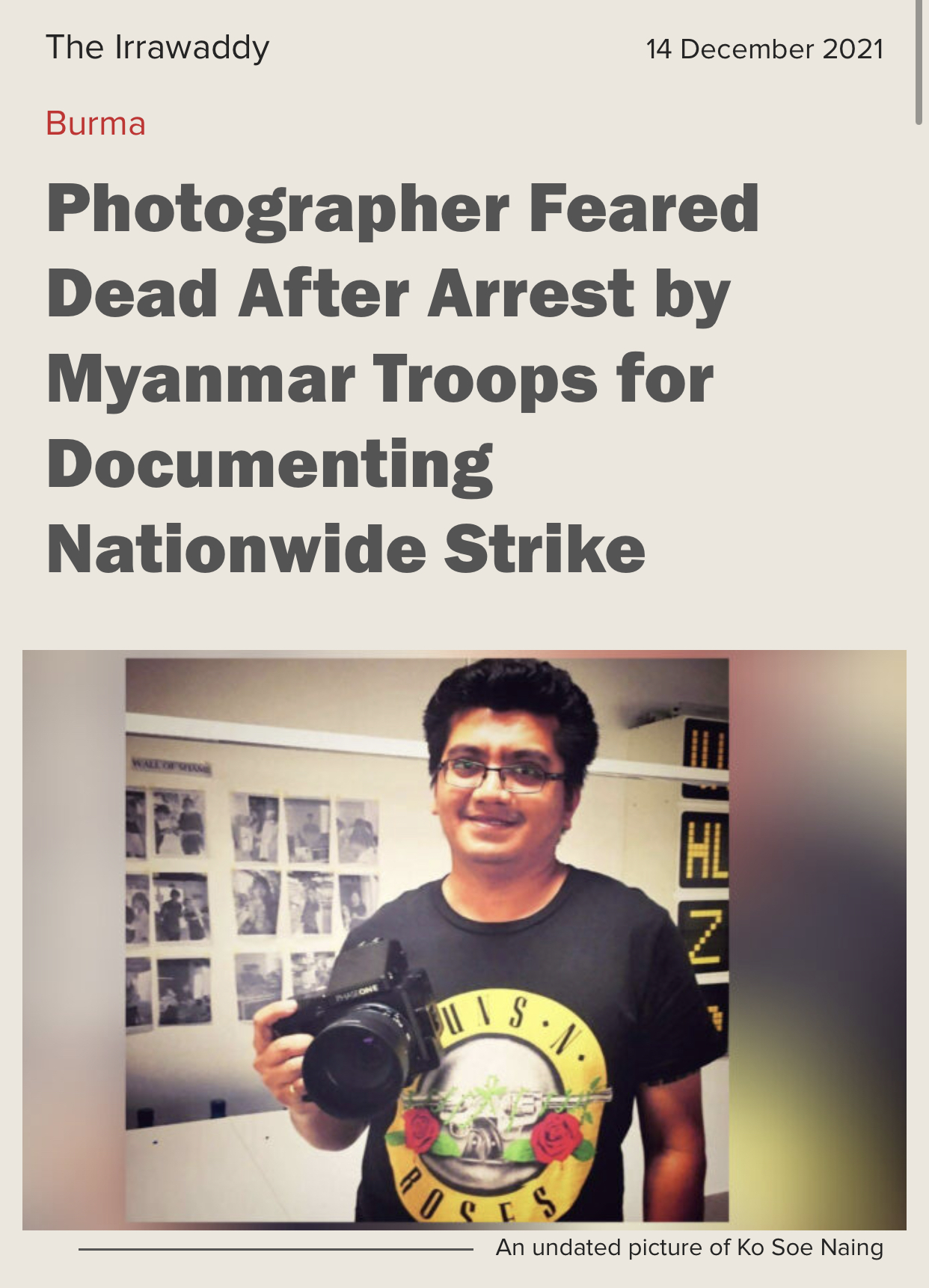 Soe Naing, a photojournalist, died in military custody in December 2021. He is the first journalist known to have died in custody since the army seized power in February. (Source: The Irrawaddy)
Soe Naing, a photojournalist, died in military custody in December 2021. He is the first journalist known to have died in custody since the army seized power in February. (Source: The Irrawaddy)
According to the 2023 World Press Freedom Index by Reporters Without Borders (RSF), Taiwan ranked No. 35 out of 180 countries, moving up three places from the year before. This places Taiwan second in East and Southeast Asia, way ahead of Myanmar (173), China (179), Hong Kong (140) and Singapore (129).
The Asia-Pacific region has been gripped by “absolute and autocratic control of information,” warned RSF. China, now sadly including the former regional media hub of Hong Kong, is the world's biggest jailer of journalists, followed by Myanmar.
The media landscape in Taiwan is free and rich, with around 600 television and radio broadcasters, but remains “impaired by a strong political polarisation, undeclared advertising, sensationalism, and the pursuit of profit,” according to RSF. This hinders access to objective information.
Nevertheless, Taiwan is a bright spot in Asia’s retreat towards authoritarianism. Living in Taipei, it can be tempting to take the hard-earned press freedoms for granted.
Three years ago in Yangon, I co-authored a piece about why media freedom matters to Myanmar’s business in an era of reform, arguing that business, media, and civil society inhabit a “shared space” in which they all benefit from accountability and transparency.
Those days are long gone. My co-author Vicky Bowman, former British ambassador to Myanmar and a well-respected advocate of transparency and responsible business, ended up in Insein prison for several months. The official reason? Her second house was registered in her husband’s name, but not hers.
The last several years have not been great for media freedom in the region. Strongman Hun Sen shut down one of Cambodia's last independent media outlets, Voice of Democracy, just months before the country’s election. India’s government earlier this year raided the BBC offices, weeks after the broadcaster released a documentary that included a critical examination of Prime Minister Narendra Modi's role in sectarian riots in the past.
Prominent Hong Kong media outlet Apple Daily and other news organisations have shuttered. Jimmy Lai, a British citizen who founded Apple Daily, was sentenced to five years and nine months in prison after being convicted of fraud. He also faces an upcoming national security trial and was denied the right to choose his lawyer.
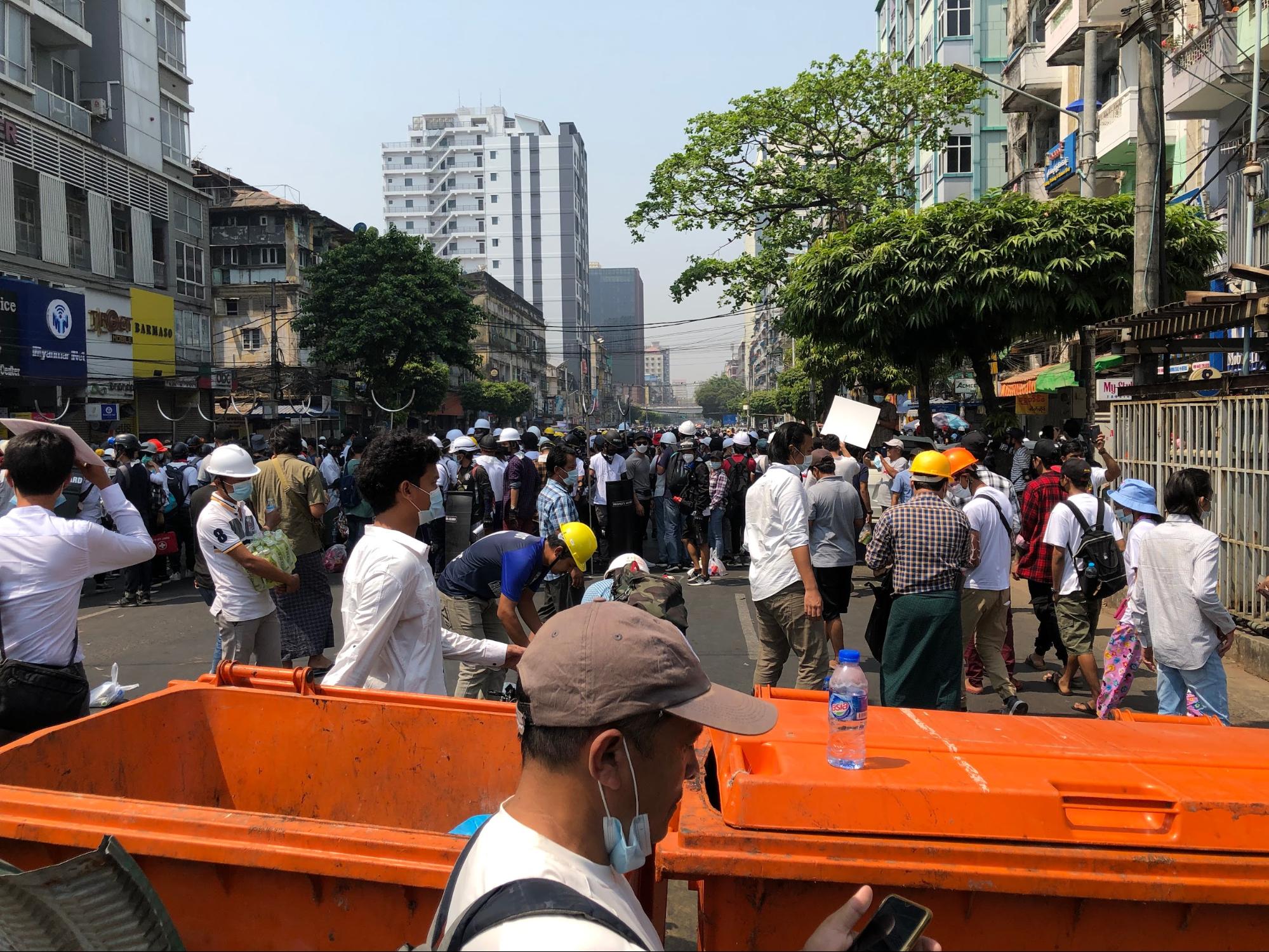 Citizen journalism plays a key part to covering Myanmar’s protests, as the regime cracks down against independent news outlets. (Photo credit: Thompson Chau)
Citizen journalism plays a key part to covering Myanmar’s protests, as the regime cracks down against independent news outlets. (Photo credit: Thompson Chau)
At least 119 journalists are detained across Asia as governments continue to relentlessly suppress media, with China, Myanmar and Vietnam standing out as among the worst offenders, according to a December report by the Committee to Protect Journalists (CPJ).
Closer to home, the Chinese government recently detained Taiwan-based publisher Li Yanhe, who writes with his pen name Fucha, on the grounds he has allegedly endangered national security. This raises further concerns about China's arbitrary arrests.
"Authoritarian leaders doubled down on their criminalization of independent reporting, deploying increasing cruelty to stifle dissenting voices and undermine press freedom,” CPJ warned.
In this critical year for Taiwan, a year of electoral campaigning, we hope that President Tsai Ing-wen, opposition leader Eric Chu, senior government officials, embassies and representative offices in Taipei, and presidential candidates will all agree to speak with Taipei-based correspondents, who are keen to make sense of what’s going on.
Taiwan should also take advantage of its openness to support journalists in the region who are under threat, especially those from Southeast Asia and the Chinese-speaking world.
Streamlining the bureaucracy and rules regulating visas of staff journalists and freelancers, and making it easier for their loved ones to visit, will go a long way towards making Taiwan the media hub it has the potential to be.
By taking steps to facilitate foreign journalists who want to be based here, Taiwan will serve a bold, new and positive role in an embattled region. It will also make it easier for the world to learn about its undertold story, and how fragile its current freedoms are in the face of China's threats.
(This piece reflects the author's opinion, and does not represent the opinion of CommonWealth Magazine.)
About the author:
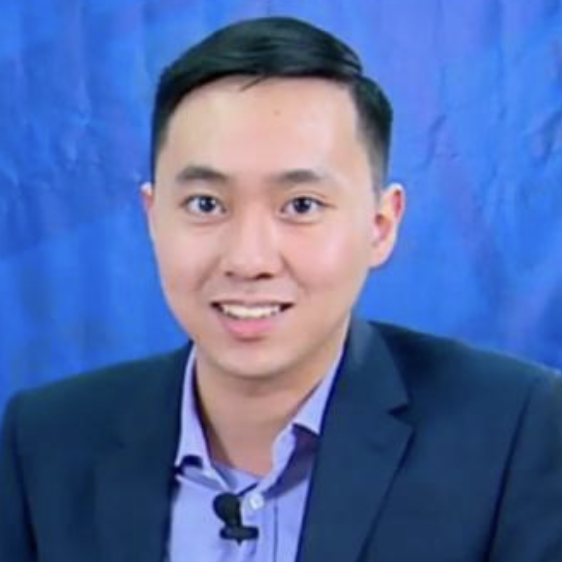
Thompson Chau is President of the Taiwan Foreign Correspondents’ Club (TFCC) 2023-2024. He focuses on covering news in Myanmar and Taiwan.
Have you read?
- Hong Kong: A City on the Brink
- For Hong Kong, No Turning Back
- Taiwan President Issues Statement Regarding Hong Kong Protest
Uploaded by Ian Huang






